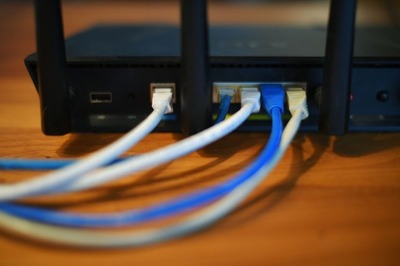
views
A dysfunctional family is where things don’t work smoothly as there are lots of problems and disagreements between family members. People may not treat each other nicely and there may be yelling and fighting around the house. It can be hard to talk about how you feel and you might not feel safe or happy in your own family. Relationships within the family can be strained, with a lack of support, understanding, and emotional connection.
Such families often struggle with effective problem-solving, setting boundaries, and maintaining healthy relationships, which can have long-term negative effects on individual family members.
Mental Health America defines a dysfunctional family as characterized by “conflict, misbehaviour, or abuse”.
In today’s digital era, there is a growing awareness of mental health on various social media platforms. Therapists and many individuals use these platforms to share valuable insights about mental health, relationships, and their significance.
Dr Allyson Kellum-Aguirre, a licensed therapist, posted a picture on her Instagram account to bring attention to the topic of dysfunctional families. In the post, she talks about some signs of growing up in a dysfunctional family.
A post shared by Dr. Allyson Kellum-Aguirre | Licensed Therapist (@mytherapytribe)
Now, let’s delve into discussing certain behaviours that are commonly accepted as normal within dysfunctional families:
- Lack of healthy communicationIn dysfunctional families, open and honest communication is often lacking. Members may struggle to express their feelings, thoughts, and concerns, leading to misunderstandings and unresolved conflicts.
- Emotional neglectEmotional needs may be disregarded or overlooked within such families. Members may not receive the necessary emotional support, validation, or nurturing, which can lead to feelings of isolation, low self-esteem, and difficulty forming healthy relationships in the future.
- Destructive behaviourDysfunctional families may enable destructive behaviours such as threats and abuse. Instead of addressing the issue, family members may turn a blind eye or actively support these behaviours, which leads to a cycle of dysfunction.
- CodependencyCodependency is a common behaviour in dysfunctional families, where individuals become overly reliant on one another for emotional support, validation, and identity. This can lead to unhealthy dynamics, loss of personal boundaries, and difficulty establishing independence.
- ManipulationIn these families, manipulative and controlling behaviours are often normalised. Family members may use guilt, fear, or other tactics to exert control over others, leading to a lack of personal freedom.
- Invalidating behaviourIn dysfunctional families, emotions and experiences may be dismissed or invalidated. Members may be told that their feelings are unimportant or exaggerated, leading to self-doubt.
- BlamingThese families often engage in a pattern of blaming and scapegoating. One member may be consistently blamed for the family’s problems or shortcomings, creating a toxic dynamic and perpetuating feelings of guilt and shame.
What's your reaction?

















Comments
0 comment